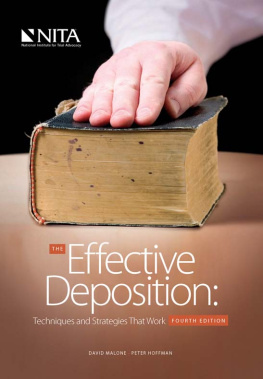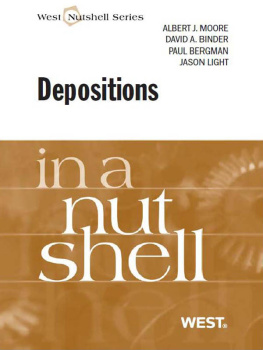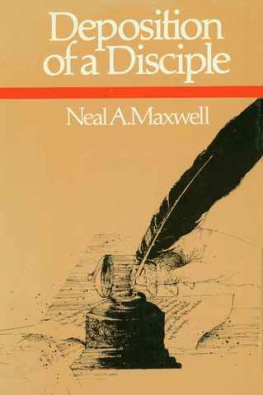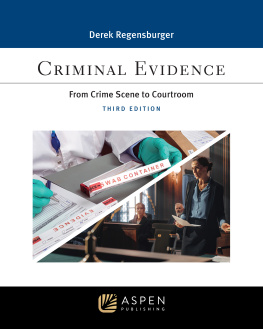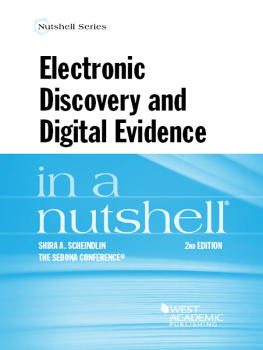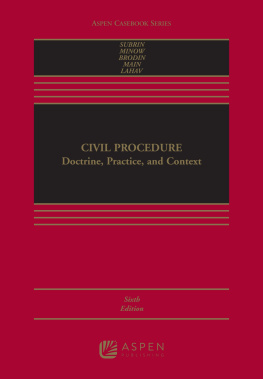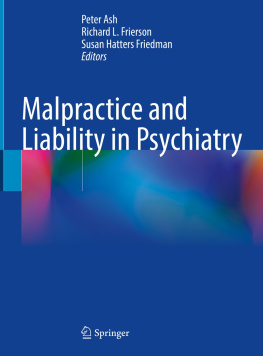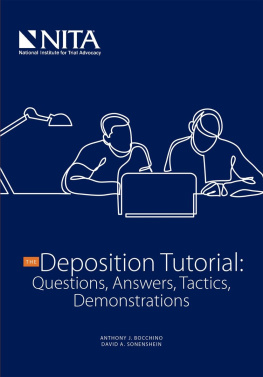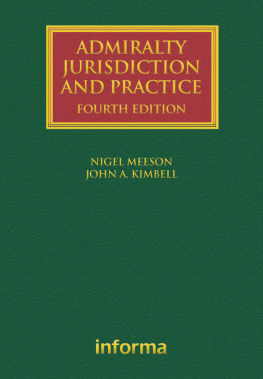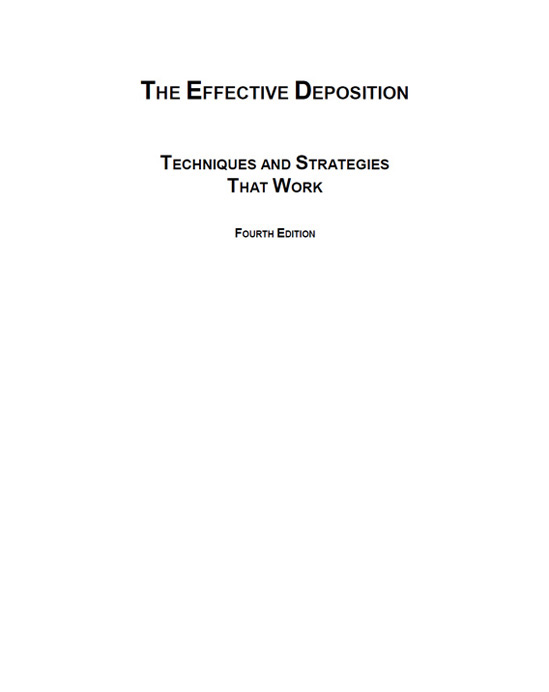
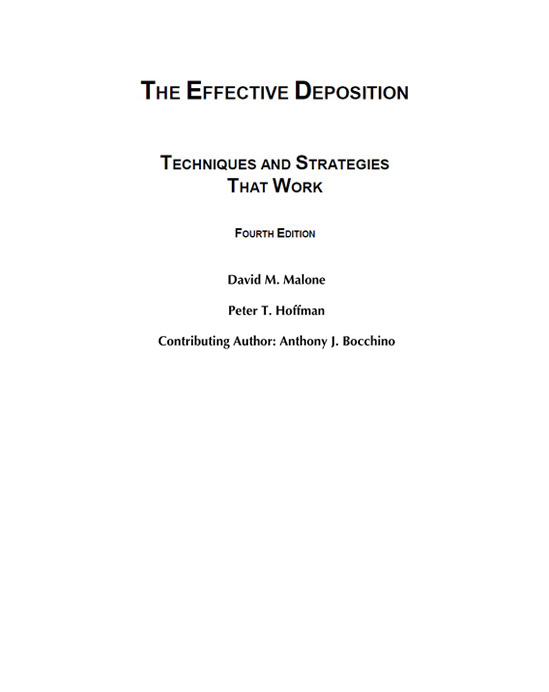
Terms of Use
Your use of this electronic publication (eBook) from LexisNexis, a division of Reed Elsevier Inc., a Massachusetts corporation, is subject to the following terms and conditions. This eBook is for your personal use only. All access to and use of this eBook is subject to U.S. and international copyright law. All intellectual property rights are reserved to the copyright holder. Redistribution or duplication of this eBook to any other electronic media or a third party is strictly prohibited. Under no circumstances may you redistribute this eBook commercially or post this eBook on an intranet, internet or SharePoint site. Finally, use of this eBook is further subject to the terms and conditions of use which were accepted at the time you completed your purchase of this eBook from the point of purchase.
2012 by the National Institute for Trial Advocacy
E-book 2012 by the National Institute for Trial Advocacy
All rights reserved. No part of this work may be reproduced or transmitted in any form or by any means, electronic or mechanical, including photocopying and recording, or by any information storage or retrieval system without the prior written approval of the National Institute for Trial Advocacy unless such copying is expressly permitted by federal copyright law.
Address inquiries to:
Reprint Permission
National Institute for Trial Advocacy
1685 38th Street, Suite 200
Boulder, CO 80301-2735
Phone: (800) 225-6482
Fax: (720) 890-7069
E-mail:
LexisNexis ISBN : 978-1-63281-423-4
Find the print version here.
To
The Memory of
Robert F. Hanley,
My Teacher and Friend
D.M.M.
Betty and Sarah, and in memory of Alice
P.T.H.
C ONTENTS
F OREWORD TO THE F OURTH E DITION
The first learn-by-doing deposition courses taught by the National Institute for Trial Advocacy (which may have been the first anywhere) more than forty years ago focused on the mechanics of questioning opposing witnesses to obtain new information and the procedures by which that information could be used to control witnesses at trial and obtain party statements and other evidence. We noted in the Foreword to the Revised Third Edition of this book that these goals of teaching deposition skills remained important, but were being displaced as litigation changed its shape, with trials less frequent and other approaches to dispute resolution more frequent.
Courts have less time available for trials because the trials that are held are more and more lengthy; drug arrest resolutions are more numerous and take extraordinary amounts of judicial resources; too many federal district court judgeships remain vacant; and attorneys are not persuasively taught that it is admirable and ethical to reduce the complexity of discovery and trials by eliminating issues, documents, witnesses, depositions, and trial time. We know that even complex caseslike major patent disputes, where the jurors understanding of esoteric expert biochemical testimony will control hundreds of millions of dollars shifting handscan be completed within the five days scheduled for trial, if the judge is strict and the attorneys have evaluated their cases rationally, prepared their cases well, and kept their egos in check. (Of course, the losing attorneys in that patent battle may avoid such streamlined trials in the future, assuming in simplistic post hoc ergo propter hoc reasoning that the trial was lost because it was short.)
Most attorneys, however, continue to believe that it is their job to grab every advantage, even if it involves delay and obfuscation. We teachers and lecturers continue to spout platitudes about the responsibility of trial counsel to be fair and ethical, the responsibility of all attorneys to seek justice and fairness in all of our dealings with clients and opponents, and the attorneys duty to act as servants of the judicial system. Yet we see little improvement in the competence of lawyers in the courtroom, little reduction in the number of ethics panel cases suspending attorneys for mishandling cases, or few proposals during pretrial that attempt to speed the civil trial process or accomplish dispute resolution while also saving money for the partiesboth the parties.
As we noted in that Foreword several years ago:
It is amusing in a way to reflect on the fact that our judicial system was itself created as an alternative dispute resolution system, so that trial-by-combat, trial-by-ordeal, or trial-by-oath could be abandoned as uncivilized. Our current system of ADR is an attempt to avoid the modern trial-by-ordeal faced today by litigants in every toxic tort, product liability, or antitrust case.
Depositions and, to a lesser extent, other discovery procedures can play a role in supporting these attempts at earlier and less expensive resolution of disputes. This efficiency and cost savings are presented as though they were always good for the parties and good for the court system. Parties do not have to face the uncertainties implicit in obtaining a jury verdict, such as the David versus Goliath factor, or financial inequality between the parties.
Nevertheless, these savings in time and dollars themselves have a cost, because the results often represent business compromises, with no input from the community that may also have been harmed. Where a judge has retained authority to approve any settlement, the public interest may receive consideration. But consider the ADR solution to an infringement suit by the proprietary drug giant against the allegedly infringing generic competitorthe generic may receive a large payment (large from its perspective) in return for an agreement to remain on the sidelines for an agreed period. The public is harmed by higher prices and the absence of competition, while the two competitors split monopoly-level profits and use the court system to enforce their agreement as though it were a matter of public policy. These arrangements have their analogues in the criminal trial system, where overworked prosecutors may plea bargain in cases because they do not have the time or resources to actually present evidence at trial. Additionally, pressure from an overcrowded prison system (again, caused to a great extent by drug law violations) may compel prosecutors to deal with shorter prison terms, even for serious offenses. Not a day goes by without a newspaper report that tells of a paroled prisoner committing another crime after release by a prison system that has not discovered how to rehabilitate or has not legislatively decided that rehabilitation is an actual and achievable goal.
If it remains true for decades into the future that more than 90 percent of cases filed in both federal and state courts are resolved outside the courtroom, then we might as well admit that the trial system has been suffocated. If the system that replaces it is capable of delivering justice, serving the parties and the public, providing the best orators of our communities an opportunity to provide a true public service, then we will have achieved some valuable evolution. However, in that system or some other that we choose, the parties will still have to find ways to inform themselves about what lay people sometimes call the true facts of the dispute, and the best way to learn that history is still through well-taken and well-defended depositions. As the number of trials diminishes, the importance of depositions increases, because they remain the very best way to determine what happened. Even when the dispute does not go to trial, the depositions provide the controlling statements that counsel can use to persuade clients that a settlement is desirable and fair; to persuade the court that summary judgment is appropriate; and to persuade witnesses to tell the truth at an arbitration or be impeached.
Next page
